Savitribai Phule: Biography, Quotes, Information, Speech, About
Savitribai Jyotirao Phule was a Maharashtrian social reformer, educator, and poet. She was born on January 3, 1831. She is known as the first female teacher and headmistress of India. She performed a significant role in Maharashtra in advancing women's rights in India, working with her husband. She is recognized for founding the feminist movement in India. Savitribai and her husband established one of the earliest modern Indian girls' schools in 1848, in Pune, in Bhide Wada. She campaigned to remove prejudice and unjust treatment of individuals based on gender and caste.
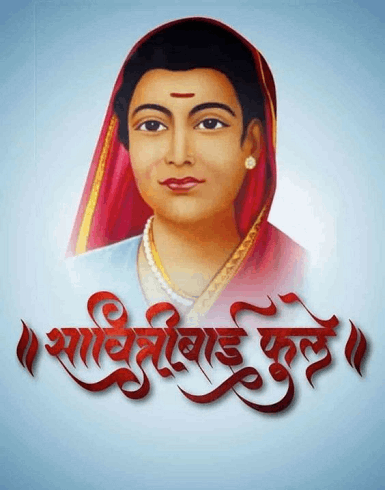
Early Life
Savitribai Phule was born on January 3, 1831, in the Maharashtrian hamlet of Naigaon in the Satara District. She was born roughly 50 kilometers from Pune and about 15 kilometers from Shirval. Savitribai Phule was the youngest child of Mali community members Lakshmi and Khandoji Nevase Patil. She has three siblings. When she was nine or ten years old, Savitribai married Jyotirao Phule, who was 13 years old. No children of their own were born to Savitribai and Jyotirao. Yashawantrao, a boy born to a Brahmin widow, is claimed to have been adopted by them. However, there is currently no original data that can be used to justify this. It is stated that because Yashwant was born to a widow, no one wanted to offer him a female when he was going to get married. Therefore, in February 1889, Savitribai organized his marriage to Dynoba Sasane, a member of her group.
Career
When Savitribai got married, she was illiterate. In addition to laboring on their farm, Jyotirao schooled Savitribai and Sagunabai Shirsagar, his cousins' sisters. Tatya Saheb Bhide lived in Bhide Wada and was impressed by the work the three were undertaking. Math, science, and social studies were all part of the Bhide Wada curriculum based on typical western subjects.
Savitribai and Jyotirao Phule had three different schools for females under their control by the end of 1851 in Pune. Around 150 pupils participated in the three institutions. The three schools' usage of teaching strategies was distinct from those of the government-run schools, much like the curriculum was. According to the author, Divya Kandukuri, the Phule methods were better than those employed by government institutions. Due to this reputation, more females were admitted to the Phule schools than boys in the public schools.
Unfortunately, the conservative residents of the area were quite hostile to Savitribai and Jyotirao Phule's achievements. According to Kandukuri, Savitribai frequently carried an additional sari to school. Since she thinks she would frequently face verbal and physical abuse from her conservative opponents and attacks with stones and dung. Savitribai and Jyotirao were residing at Jyotirao Phule's father's house. However, in 1839, Jyotirao's father requested that the couple leave his house. The Manusmriti and its derivative Brahmanical writings viewed their work as sinful.
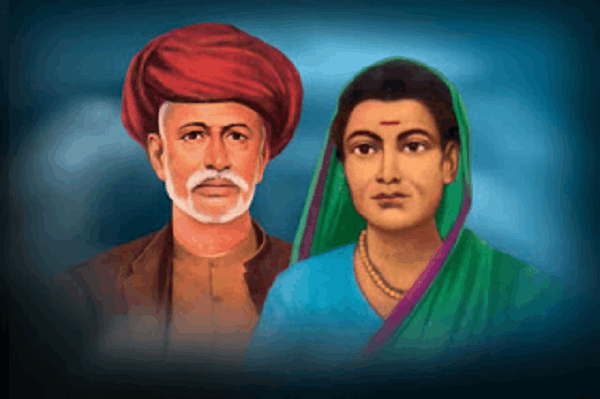
The Phule family relocated to Usman Sheikh's family after leaving Jyotirao's dad's house. Usman Sheikh is a friend of Jyotirao. There, Savitribai first met Fatima Begum Sheikh, who would become a close friend and work colleague. Nasreen Sayyed, an authority on Sheikh, claims, "Fatima Sheikh had already learned to read and write, and her brother Usman, a friend of Jyotiba's, had urged Fatima to enroll in the teacher preparation program." She attended the Normal School with Savitribai, and the two of them received their diplomas at the same time. She was India's first Muslim female teacher. In 1849, Fatima and Savitribai established a school within the Sheikh's house.
Savitribai and Jyotirao Phule created two educational trusts in the 1850s. The Native Male School, Pune, and the Society for Promoting the Education of Mahars, Mangs, and Etceteras were the names of these institutions. Savitribai Phule and then Fatima Sheikh were in charge of these two trusts, which eventually included many schools.
Other Endeavours
She supported her husband's attempts to abolish the caste system, end the practice of "untouchability," win equal rights for those from lower castes and change the Hindu family structure by working side by side with him. They constructed a well in their home for the untouchables when untouchables were considered to have an unclean shadow, and people were hesitant to offer them water.
She also participated in the Satyashodhak Samaj, a social reform group that Jyotirao formed on September 24, 1873, in Pune. The Muslim, non-Brahman, Brahman, and government officials made up the samaj's members. They shared the goal of preventing the oppression and exploitation of women, Shudras, Dalits, and other underprivileged people.
The couple planned low-cost weddings in the samaj without a priest or dowry. In these weddings, the bride and the husband exchanged commitments that served as their wedding vows. Her husband passed away on November 28, 1890. After his death, Savitribai began the organization's leadership as chairwoman of the women's section. While leading the samaj, Savitribai continued her husband's work till she passed away.
Beginning in 1876, Savitribai and her husband helped firmly through the famines. They created 52 free meal hostels in Maharashtra and supplied free food in several locations. During the drought of 1897, Savitribai further convinced the British government to start relief efforts.
She spoke out against caste and gender inequality as an educator and social activist. She published her poetry collections in Kavya Phule (1934) and Bavan Kashi Subodh Ratnakar (1982).
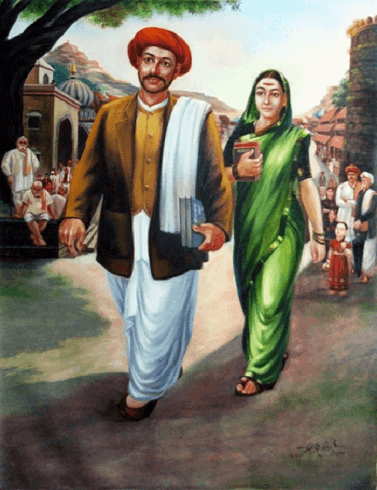
Death
The bubonic plague emerged in the region of Nalasopara in 1897. Savitribai and her adoptive son, Yashwant, built a clinic to assist individuals impacted by it. She built the facility in an infection-free environment in the western suburbs of Pune. Savitribai sacrificed her life in a noble effort to preserve Pandurang Babaji Gaekwad's child. When Savitribai Phule found out that Gaekwad's son had been ill with the plague in the Mahar population outside of Mundhwa, she ran to his side and took him for medical treatment on her shoulders. Savitribai Phule contracted the plague because of this, and she passed away at 9:00 p.m. on March 10, 1897.
Poetry and Other Work
Savitribai Phule also wrote poetry and prose. She also released a poem titled "Go, Get Education," which urged oppressed people to liberate themselves by pursuing an education. She released Kavya Phule in 1854 and Bavan Kashi Subodh Ratnakar in 1892. Savitribai's efforts and experiences led her to support feminism with zeal. To promote women's rights, she founded the Mahila Seva Mandal. She also demanded that there be a space where women may congregate that is devoid of any form of caste-based prejudice. The requirement that every woman in attendance sits on the same mat served as a symbol of this. She advocated against infanticide as well. She established the home to prevent infanticide (a women's refuge where Brahmin widows could safely give birth to their children and leave them there if they wished.) She also supported widow remarriage. Savitribai launched a campaign against child marriage. Savitribai and Jyotirao founded a shelter for widows and abandoned children in opposition to Sati Pratha.
Savitribai described in a letter to her husband, Jyotirao, how she stepped in to save a boy from being killed by his childhood friends. Since he had relationships with a lower caste woman, she stated, "I learned of their terrible scheme. I arrived on the scene and frightened them away by explaining the serious legal consequences of murdering the couple under British law. They listened to me and decided the contrary ".
Legacy
Generations have continued to be inspired by Savitribai's persistent attempts to eradicate society's problems for centuries and her extensive legacy of positive improvements. Over the years, her reforming effort has received recognition. The Pune City Corporation established a monument in 1983 in her honor. March 10, 1998, saw the issuance of a stamp in her honor by India Post. Savitribai Phule Pune University was the new title given to the University of Pune in her honor in 2015. On January 3, 2017, Google's search engine celebrated her 186th birthday with a Google doodle. Maharashtra honors female social revolutionaries with the Savitribai Phule Prize.
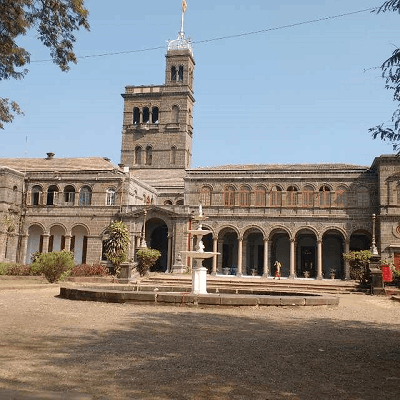
An Incident that Changed Savitribai Phule's Life
When Savitribai was a child, her father caught her red-handed, taking pages out of an English-language book. She was given a book, which he grabbed from her hands and flung far away, telling her never to pick one up again. In those days, studying was considered the exclusive privilege of males from higher castes. Savitribai pledged that day that she would continue to study reading and to write no matter what happened.
Savitribai Phule Biography: Resistance In Her Job
As she traveled to her schools to teach, Savitribai Phule had to bring an additional saree since she was harassed with stones and mud by the community's strict upper-caste residents.
Since the Phule family belonged to the marginalized Mali caste and was educated despite this, they had problems with the upper Brahmin class in their community.
They were eventually forced to leave their father's home in 1849 after being accused of sinning, learning against Manusmriti and its Brahmanical scriptures.
She founded 18 schools with her husband and educated kids from diverse castes. Additionally, they established Balhatya Pratibandhak Griha, a center for rape and pregnancy victims.
In the Maharashtra town of Naigaon, Savitribai Phule was born into a farming family. She significantly contributed to the advancement of women's circumstances and established the nation's first women's educational institution.
Some Important Facts about Savitribai Phule
1. Savitribai Phule is regarded as one of India's earliest contemporary feminists.
2. She battled against societal ills like sati pratha and child marriage, having been married at the young age of nine.
3. She prioritized women's education. Savitribai and her husband, Jyotirao Phule, founded the country's first school for girls. They eventually opened 18 schools for girls together.
4. She advocates for women's rights and the struggle against the corrupt caste system.
5. She acted out of passionate rejection of untouchability. She showed her love for the outcast by opening up well to the untouchables in her home.
6. Savitribai Phule was not merely a social reformer but also a poet and philosopher. Her poems largely focused on the environment, education, and the elimination of the caste system.
7. She noticed the horrific conditions of pregnant rape victims. In response, she and her husband established the "Balhatya Pratibandhak Griha" as a care facility.
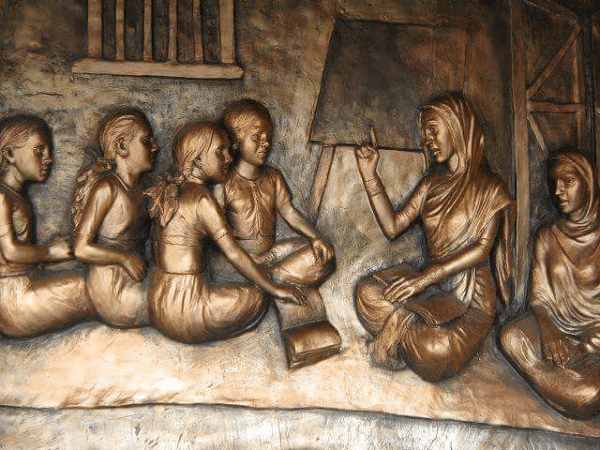
8. She planned and oversaw a walkout against barbers to stop them from shaving widows' heads, which was traditional in those days, to decrease their suffering.
9. She used to pay kids money for going to school to motivate pupils to learn and lower the dropout rate.
10. She supported intercaste marriages at a period when the caste system was ingrained in Indian society. She established the Satyashodhak Samaj. With this, Savitribai, with her spouse, was responsible for arranging weddings without a priest and dowry.
The Phule couple received recognition from the government for their great work in education. Savitribai Phule was undoubtedly a woman ahead of her time.